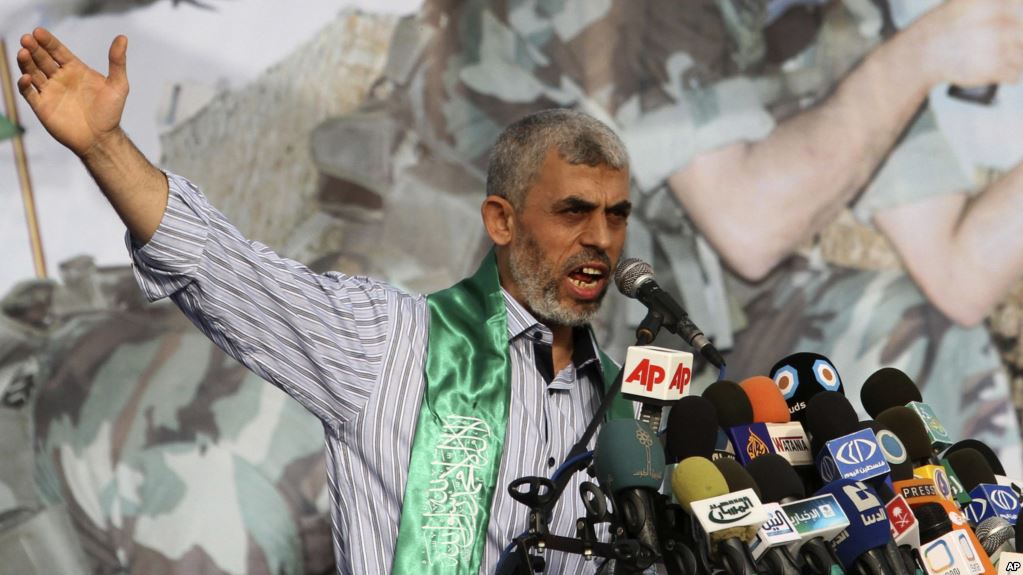Ramallah – Hamas has elected Yahya Sinwar, a senior commander of the Ezzedine Qassam Brigades, as its next leader in the Gaza Strip. Sinwar is set to replace Ismail Haniye and Khaled Meshaal.
Media outlets reported that Sinwar,55, was elected as the head of the political bureau with Khalil Hayya as his deputy, in a secret ballot that took place in the Strip, the West Bank, among prisoners and members abroad.
The movement has also elected 15 leaders of the Gaza Strip Council, including Mahmud Zahar, Fathi Hamad, Salah Bardawil and Marwan Issa.
The results of the elections reveal that Qassam brigades are able to control political positions in the movement. This comes after members of Qassam swept the elections in several areas in Qaza, who in turn elected the political bureau of the movement in the strip.
Gaza composes, along with prisons, of four sectors that have internal elections in Hamas every four years. West Bank is expected to hold elections as well. Hamas members elect the leadership of four sectors as well as the Shura council of the movement and the political bureau.
Gaza Strip is the most important of all four strips since most of its residents are within Hamas institutions and the army formed by Qassam is headquartered inside the strip.
Earlier, Asharq Al-Awsat newspaper published an article about the domination of the military wing in Hamas’ internal elections – which paved the way for a larger control.
Informed sources told the newspaper that the elections revealed the military wing is almost in total control which led to reelections in several areas and winning by acclamation in others.
The election of Sinwar would appear to bring an end to a long-running internal struggle in Hamas between the group’s armed and political wings.
Sinwar rejects any form of reconciliation with Israel. He is regarded by Israeli security officials as one of the most uncompromising of the three figures who had been leading Hamas’s military wing. Unlike the political wing, Sinwar welcomes Iran’s support whether military or financially.
Haniye also supports dialogue with all parties including Iran. But Sinwar is known for being a hardliner key figure and many families accused him of executing their children for several accusations. He also killed, without trial, anyone who was proven to have collaborated with Israel.
Israel sentenced Sinwar to four life terms in the late 1989. He served 22 years before Israel freed him in 2011 during a swap of 1,047 Palestinian prisoners for Israeli soldier Gilad Shalit, who was abducted by Gaza fighters in a cross-border raid in 2006.
In 2015, U.S. enlisted Sinwar on its terrorist list along with Qassam Brigades’ general leader Mohammed Dayef and Fathi Hamad.
The newly elected leader also has to deal with the issue with Egypt. Cairo insists that wanted Qassam members should be handed over, which is expected to be rejected by Sinwar.
Israeli media outlets described Sinwar as an extremist who wouldn’t hesitate to resort to violence. The government’s representative, Yoav Mordechai, warned of the ramifications of Sinwar which could lead to destructive results in Gaza and Palestine as whole.
Observers believe now that Sinwar is in charge, Israel will have more violent wars with Hamas. Yet, Hamas’ decisions are controlled by institutions and Shura Council and not just by Sinwar.
